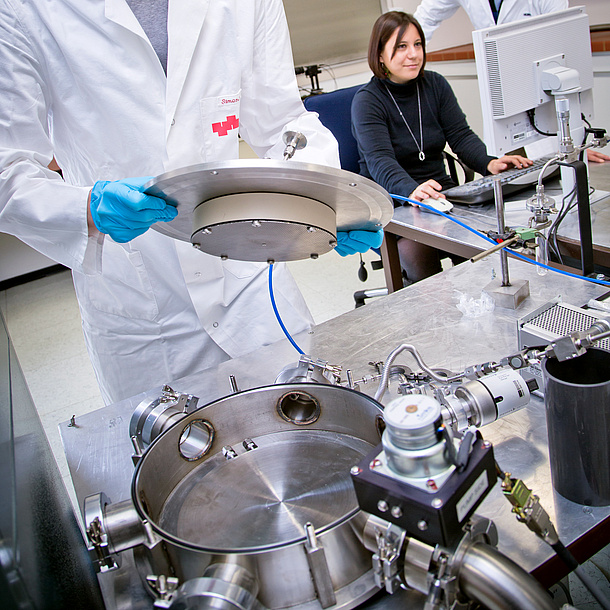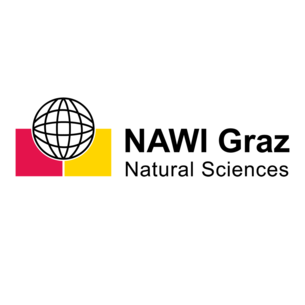Content
- read and understand the scientific literature,
- solve all the technical problems associated with the experiments in your project,
- publish articles in refereed international physics journals, and
- present your results at international conferences.
- Duration of study:
Formal duration: 3 years
Average duration: 3 to 4 years - Academic degree: Doktorin/Doktor der technischen Wissenschaften (Dr. techn.; translation: Doctor of Technical Sciences) or Doktorin/Doktor der Naturwissenschaften (Dr.rer.nat.; translation: Doctor of Natural Sciences), equivalent to the Doctor of Philosophy (PhD)
- Language of instruction: English
- Admission requirements: see requirements for doctoral programmes
- Curricula:
- Statutes:
- in German: Statuten der Doctoral School Physik

The Doctoral School of Physics is a great preparation for almost any career, not only in academia but also in the private sector. By working with leading scientists and international colleagues on forefront ideas in science and technology you develop skills valuable in areas beyond physics. This opens a wide range of future careers.me time, you build competences that qualify you for higher-level and leadership tasks for your future employers.
- Head of the Doctoral School of Physics
Markus AICHHORN
Assoc.Prof. Dipl.-Ing. Dr.techn.
Tel.: +43 316 873 8191
aichhorn@tugraz.at - Dean of Studies
Wolfgang VON DER LINDEN
Univ.-Prof. Dipl.-Phys. Dr.rer.nat.
Phone: +43 316 873 8170
vonderlinden@tugraz.at - Student representative
Elena UNTERLEUTNER
Dipl.-Ing. BSc
elena.unterleutner@tugraz.at - Student representatives: PhD Union
Admissions to doctoral studies are possible in the current semester at any time up to a maximum of ten days before the start of the general admission period of the following semester. Admission deadlines
Further informationen on registration and admission
International degree programme applicants: admission and application deadlines
Further information and documents for students of the Doctoral School of Physics are available on the website of the Doctoral School as well as in intranet TU4U: Doctoral School of Physics
Teaching staff, Institutes and Focus Areas
The following institutes are associated with the Doctoral School of Physics:
Institute of Experimental Physics
Research areas at the Institute of Experimental Physics include studies of free atoms, molecules, and clusters using high-resolution laser spectroscopy and ionization methods, and surface scattering as well as nonlinear optics, plasma diagnostics and high temperature materials characterization.
Institute of Solid State Physics
The Institute of Solid State Physics examines the properties of solids, surfaces, and interfaces using techniques such as X-ray diffraction, infrared spectrometry, and electron microscopy. These results are being applied to problems like making better light-emitting diodes, solar cells, sensors, and transistors; making drug delivery more effective; and producing stronger paper.
Institute of Theoretical and Computational Physics
The research activities of the ITPCP focus on many-body systems in solid state and plasma physics. Research topics range from weak to strong correlation effects, such as band structures, magnetism, spintronics, high temperature superconductivity, colossal magneto-resistance, plasma confinement, heating in thermonuclear fusion devices, and transport in nanomaterials.
Institute of Materials Physics
The Institute of Materials Physics at TU Graz is working on basic and applied materials research with a major focus on nanostructured functional materials, defects in solids, and health issues of radiation physics.
Institute for Electron Microscopy and Nanoanalysis
The Institute for Electron Microscopy and Nanoanalysis has several of Europe‘s most advanced electron microscopes. It plays a primary role to support interdisciplinary and interfaculty research, training and education through essential resources for electron- and ion beam micro and nanocharacterization of all kinds of advanced materials.



